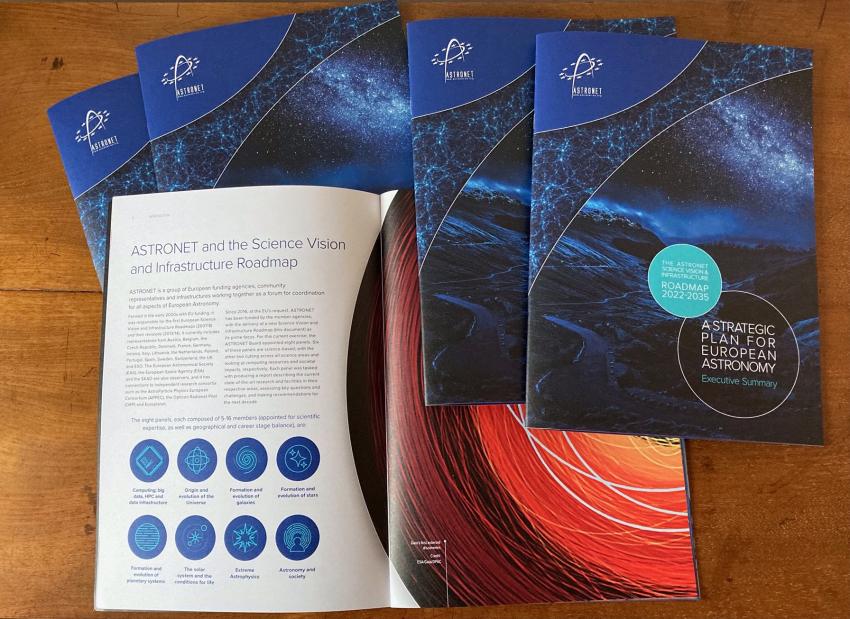Astronet is a network of European funding agencies and research organisations, working together on international strategic planning for astronomy. The network has now published a roadmap for European astronomy from 2022-2035.
Teams of leading astronomers across the continent identify key science goals for the next 12 years, from the nature of dark matter and dark energy, to the conditions for the emergence of life, and the early evolution of the universe.
The document sets out ambitions in different strands such as computing and data management, new facilities on the ground and in space, sustainability and accessibility, and training, education, and public engagement. Recommendations include a camera for the European Extremely Large Telescope to characterise Earth-sized planets around nearby stars, a radio observatory on the far side of the Moon, and a next generation infrared space telescope.
Teams prioritised minimising the carbon footprint of astronomy projects, empowering astronomers to carry out public engagement in climate science, diversity and inclusion, and protecting dark and radio-quiet skies. They urge research funding agencies to devote 1-2% of the budget for projects to public engagement, stress the importance of education and training in general, and call for “respectful mutual engagement” with communities where astronomical facilities are proposed for construction.
Despite Brexit, the UK remains a leading member of the European Southern Observatory and the European Space Agency, and our scientists collaborate closely with their peers both in the European Union and in other European countries. Astronet is a vital part of their planning process.
Professor Mike Edmunds, President of the Royal Astronomical Society, welcomed the report. He said: “This is an ambitious and exciting programme of future research in astronomy and cosmology. It illustrates the real power of European collaboration in humanity's quest to understand our place in the Universe.”


